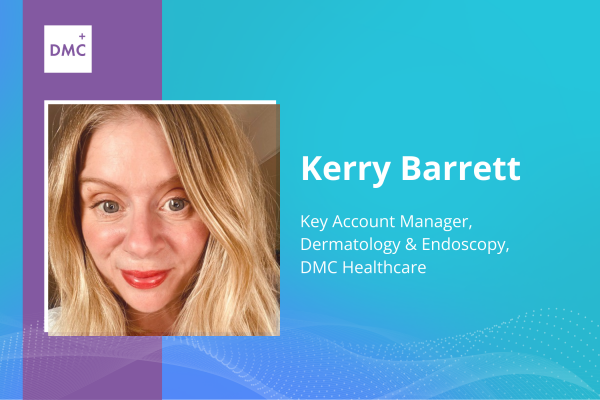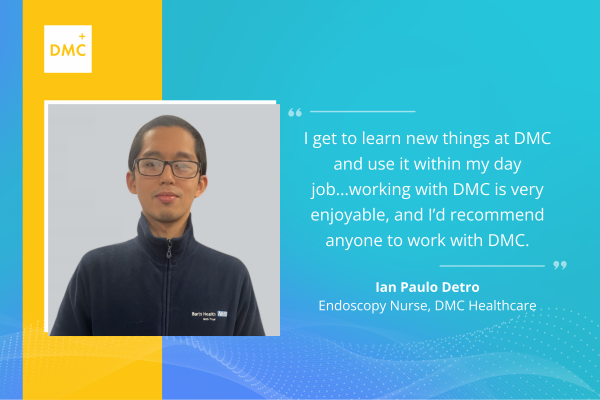
People Story | Kerry Barrett | Key Account Manager, Endoscopy & Dermatology Services, DMC Healthcare
Kerry Barrett, Key Account Manager, Endoscopy & Dermatology Services explains why her character is perfect for a career in healthcare and why working at DMC has been life changing, after 22 years in the NHS.



